- News
- Reviews
- Bikes
- Components
- Bar tape & grips
- Bottom brackets
- Brake & gear cables
- Brake & STI levers
- Brake pads & spares
- Brakes
- Cassettes & freewheels
- Chains
- Chainsets & chainrings
- Derailleurs - front
- Derailleurs - rear
- Forks
- Gear levers & shifters
- Groupsets
- Handlebars & extensions
- Headsets
- Hubs
- Inner tubes
- Pedals
- Quick releases & skewers
- Saddles
- Seatposts
- Stems
- Wheels
- Tyres
- Tubeless valves
- Accessories
- Accessories - misc
- Computer mounts
- Bags
- Bar ends
- Bike bags & cases
- Bottle cages
- Bottles
- Cameras
- Car racks
- Child seats
- Computers
- Glasses
- GPS units
- Helmets
- Lights - front
- Lights - rear
- Lights - sets
- Locks
- Mirrors
- Mudguards
- Racks
- Pumps & CO2 inflators
- Puncture kits
- Reflectives
- Smart watches
- Stands and racks
- Trailers
- Clothing
- Health, fitness and nutrition
- Tools and workshop
- Miscellaneous
- Buyers Guides
- Features
- Forum
- Recommends
- Podcast
Why do my feet hurt when cycling and how can I solve it?
Feet can often be the cause of discomfort on the bike whether that be hotspots, pressure points or numbness. According to our friendly local bike fitter this is almost always avoidable, so we went along for a lesson and some remedies for you to try if you experience foot pain on the bike.
> The most common bike fit mistakes and how to avoid them
This feature is broken down into three distinct sections: Choosing the right shoes for your feet, cleat positioning and finally insoles. Our trusty bike fitter, Luke Craddock from Synergy Performance, recommends tackling these in this order for best results; but first a bit of background information about foot structure.
What's in a foot anyway?
It's much more than just something to keep you standing upright! The foot is made up of loads of tiny bones, lots of nerves and lots of capillaries, then in between the toes there are sacks of fluid. It's safe to say that there are plenty of opportunities for discomfort to creep in.
It's no wonder then that so many cyclists complain of experiencing foot pain when cycling. Numbness, hot spots, cramping in the arch and excessive pressure on the top of the foot are all common. Craddock adds that pain in the Achilles and knees can also often be down to problems that stem from the foot.
> Best road cycling shoes 2024
The foot is a very delicate structure and also the point that we apply all of our pressure when cycling. It's designed to be delicate and sensitive, we've evolved to 'feel' the floor in order to stabilise ourselves. The problem is cycling shoes are typically the exact opposite, because stiff plates have very little give or flexion. This means no compensation or chance for the foot to find a comfortable position, but don't worry... all is not lost!
1. The right shoes for the job
Shoe width is a well documented problem of the bike industry, and one that brands finally seem to be waking up to. The likes of Lake and Bont have long championed wide fitting shoes, but they're now being joined by a whole host of other brands. Fizik has been rapidly adding to its "wide" range which feature a 4mm wider sole.
This is particularly beneficial to us Brits, who typically have a boxy (less dainty) foot shape, and sometimes with collapsed arches which cause the toes to splay, hence need more width.
Craddock suggests still applying caution when purchasing new shoes, and looking out for brands that are simply using more material on the same sole for their "wide fit" shoes, when really the sole should be wider as well.
He adds: "Many people buy shoes based on their looks. The problem is if your delicate foot structure and nervous system aren't happy then you aren't going to be putting the most power out that you can, you're not going to be comfortable and you're not going to be connected to the bike."
Craddock also raised the point that many people size up their shoes to accommodate wider feet that the shoe is perhaps designed for. This opens up a whole avenue of further problems, such as having to tighten the shoes too much or being unable to put the cleats in the right place relative to your foot.
A quick test that you can do at home is to draw around your bare foot on a piece of paper and compare this to the shape of the soles on your cycling shoes. Your shoes should be able to accommodate your feet when they are splayed (standing pressure on them) for maximum comfort.
2. Cleat location
You may have heard (or read) that the pedal axle should be under the ball of the foot, but the experts' views on this do appear to be changing.
Craddock says: "You just have to look at how much of the pedal body is under the toes when the axle is placed on the first metatarsal, the foot isn't a very good lever and placing the cleats/pedal further forward just extenuates this.
> How to get your shoe cleats set up right — two-bolt and three-bolt positioning explained
"Many riders could benefit from shifting their cleats further back, some shoe manufacturers have better cleat setback locations than others".
Your cleat location should stabilise the foot and will differ depending on your objectives as a rider. For example, if you're a track rider or sprinter then positioning your cleats further towards the front of the shoe might work better for you.
> When should you get new cleats?
However, "the vast majority of riders will benefit from having their cleats further back as it will stabilise the foot, reduce ankling, promote hamstring and glute recruitment and reduce the strain on stabilising ligaments and muscles to keep your knees tracking straight", says Craddock.
3. Insoles
Have you ever thought it's odd that the difference between an insole that comes with a £60 shoe looks very similar to one that might come with a £360 shoe? Well, so does Craddock, and he says it's an area that cycling shoe manufacturers could seriously improve.
We've already discussed how the structure of the foot is delicate, and to make this as stable as possible, connection is important. In simple terms, this means that you want as much of your foot to be in contact with the insole as possible.
If they're handy then pop the insoles out your shoes and have a good look at them. Are there any wear marks? Have you been clawing at them with your toes, or is one more worn than the other? If so, these are all signs that something untoward is going on.
> How a gait analysis can improve your cycling performance
"About 90% of the people that come in here have an arch height that requires [support] from something more than the 1mm piece of foam that stock insoles provide."
There are multiple ways that you can support your arch/arches (each foot actually has three arches that need supporting).
Firstly, some brands such as Giro and Quoc are now offering foam inserts that stick to the bottom of the insoles. Secondly, there's off-the-shelf orthotics which can be selected depending on arch height. Your third option (and most expensive) is a custom orthotic similar to what you'd get in ski boots.
These take a flat insole which is then moulded to the shape of your foot. The Sidas version that we tried out was developed with the Astana Pro Cycling team.
Whichever direction you choose, Craddock says that you should be looking for your foot to be touching the insole over as big an area as possible. This will not only help to alleviate foot discomfort, but can also help to reduce the pressure on your sit bones by as much as 30-40%
If these arches are not supported adequately then it can cause the arch to collapse, therefore the toes splay and make your shoes restrictive.
Have you ever experienced foot pain when cycling and have you managed to find the root of the problem? Let us know in the comments below.
Jamie has been riding bikes since a tender age but really caught the bug for racing and reviewing whilst studying towards a master's in Mechanical engineering at Swansea University. Having graduated, he decided he really quite liked working with bikes and is now a full-time addition to the road.cc team. When not writing about tech news or working on the Youtube channel, you can still find him racing local crits trying to cling on to his cat 2 licence...and missing every break going...
Latest Comments
- andystow 3 hours 14 min ago
Local to me: 3 injured after multi-vehicle crash in Downtown Peoria....
- Destroyer666 7 hours 57 min ago
Anodizing the aluminium is also for corrosion resistance and therefore enhances the longevity of the rims while this is not really a case for...
- bobbinogs 9 hours 11 min ago
Wheelsmith has always been very good for me. Malcolm was always very opinionated so I got bored with him telling me I should be riding tubeless,...
- Terry Hutt 9 hours 30 min ago
I assume you can carry an e-bike battery on the tube if you leave the bike at home. ...
- chrisonabike 10 hours 32 min ago
I love it - it's a roundabout with a sculpture of a roundabout on its desk!
- cmedred 10 hours 33 min ago
From the position of the cyclist when the video starts and the position of the bike later, it looks highly unlikely that the cyclist went "into the...
- Rendel Harris 10 hours 39 min ago
To rhyme with design. I wondered this myself so looked it up a while ago, according to the founder Micki Kozuschek he and his team had a few...
- Rendel Harris 11 hours 32 min ago
It's not being pedantic at all, careless driving is successfully prosecuted (and I have been in court more than once when a driver has been...
- HLaB 11 hours 56 min ago
It's hopefully an urban myth but I heard it was designed that way on purpose, so the cyclepath captured any flooding and the busway would remain clear
- mdavidford 11 hours 59 min ago
I should imagine eating chopsticks anywhere could be potentially rather perilous.
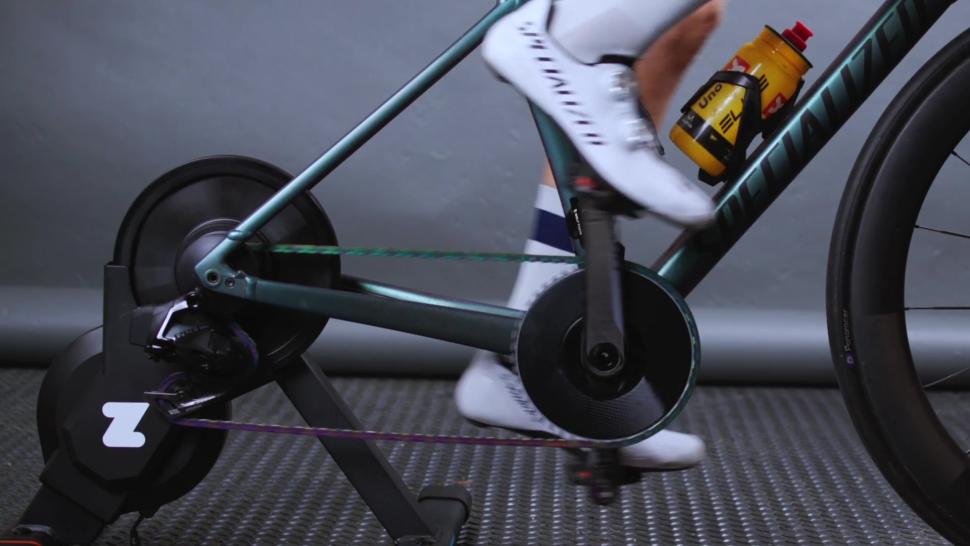
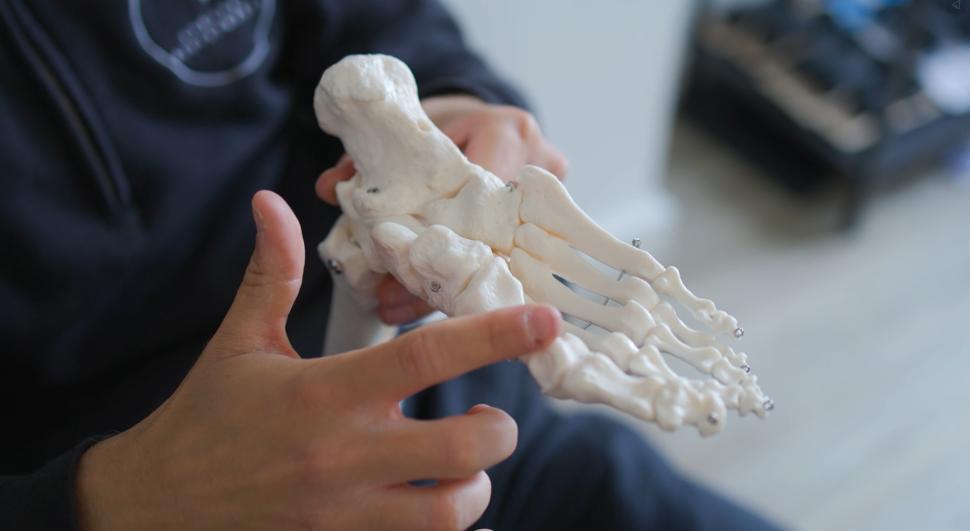
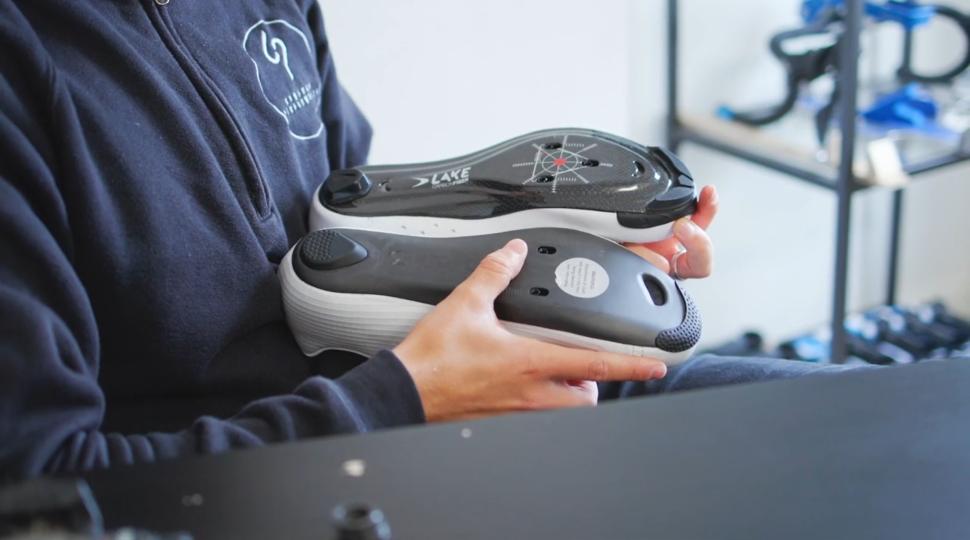
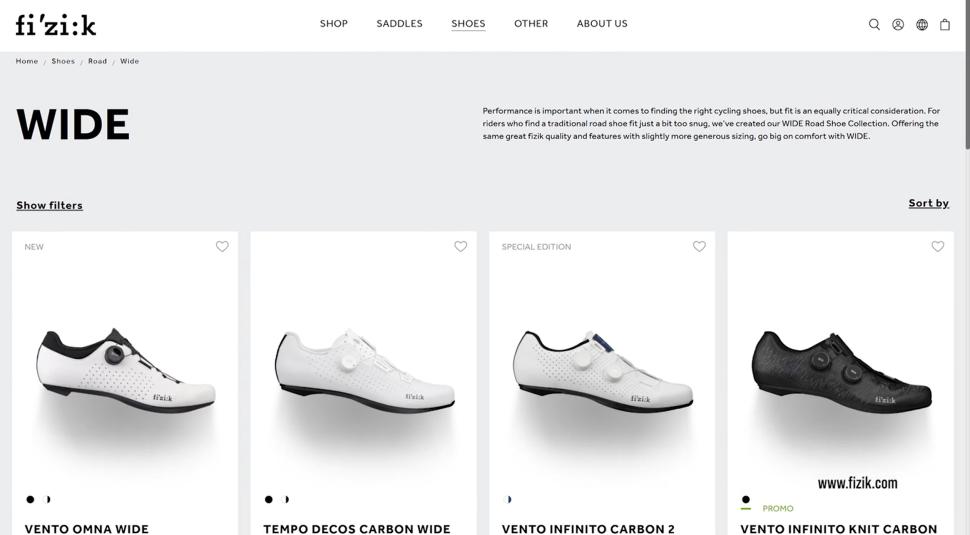
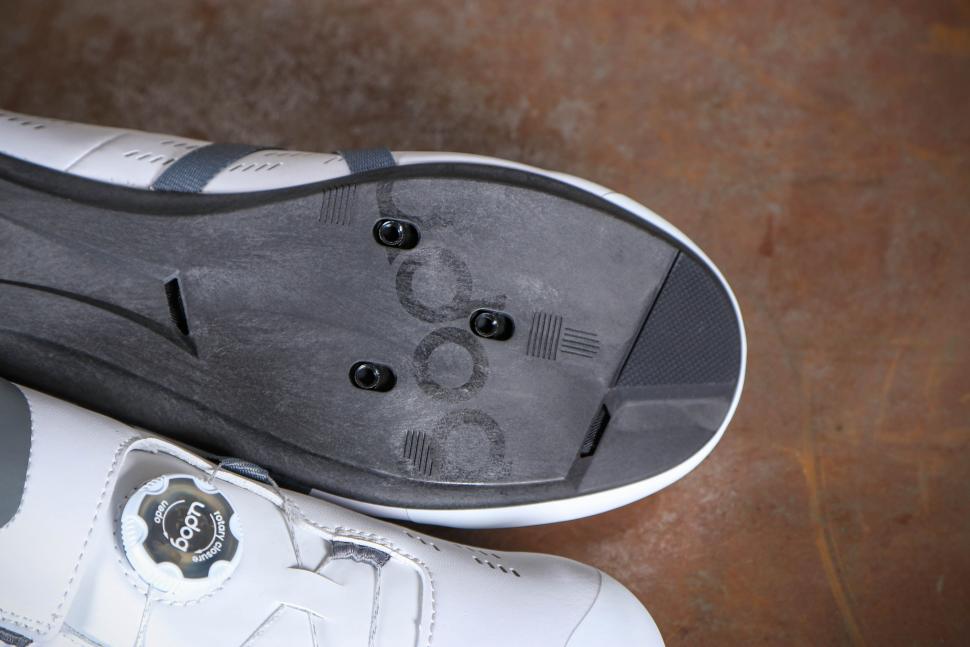
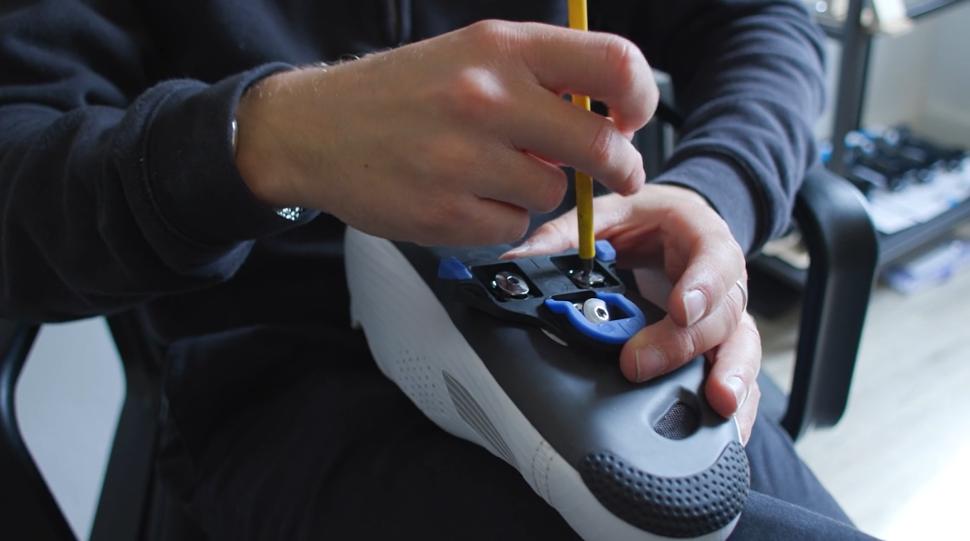
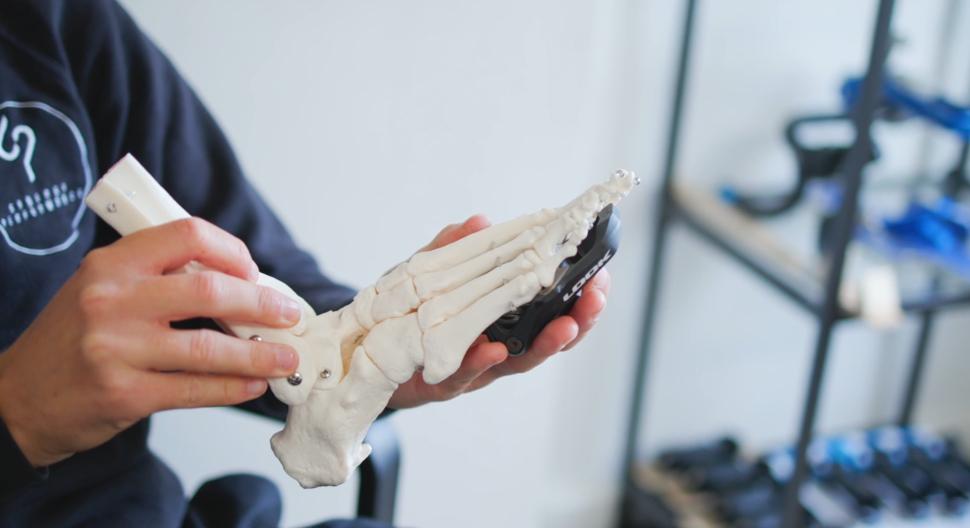
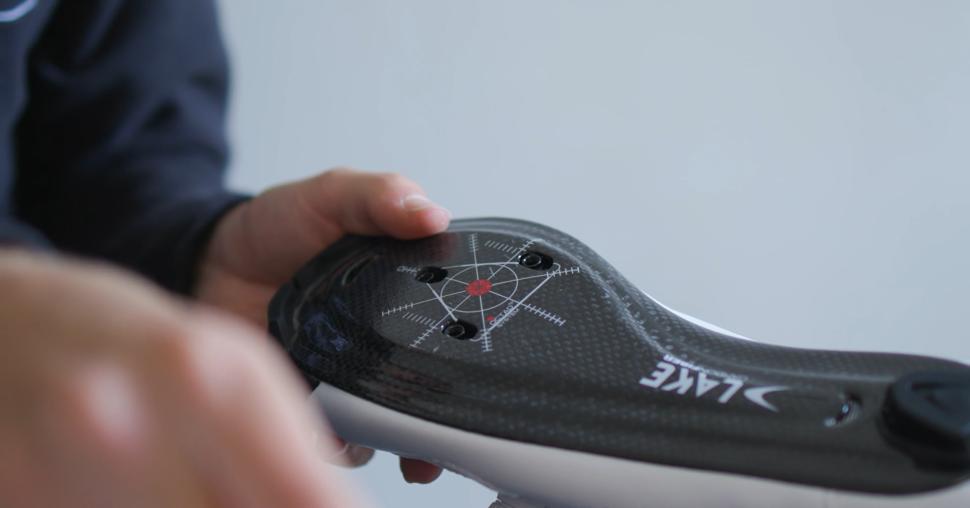
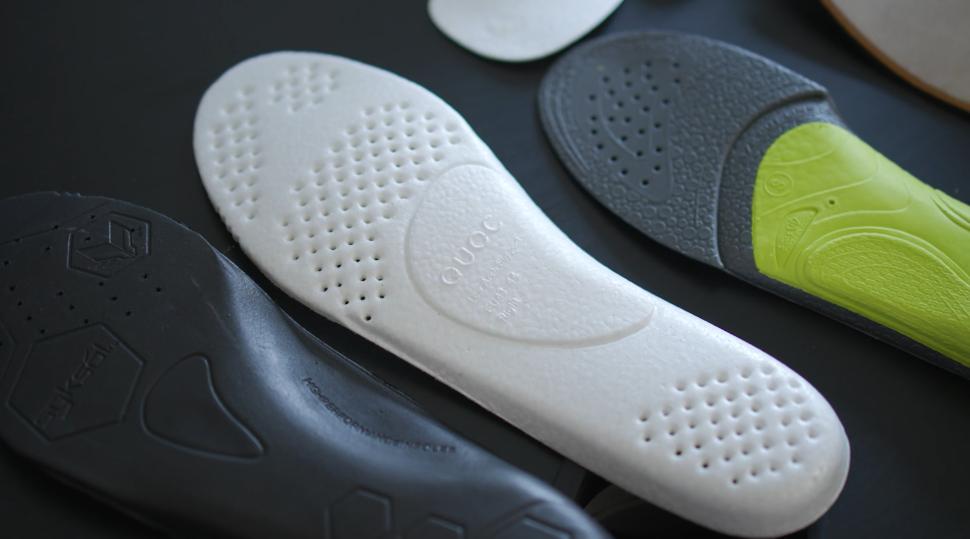
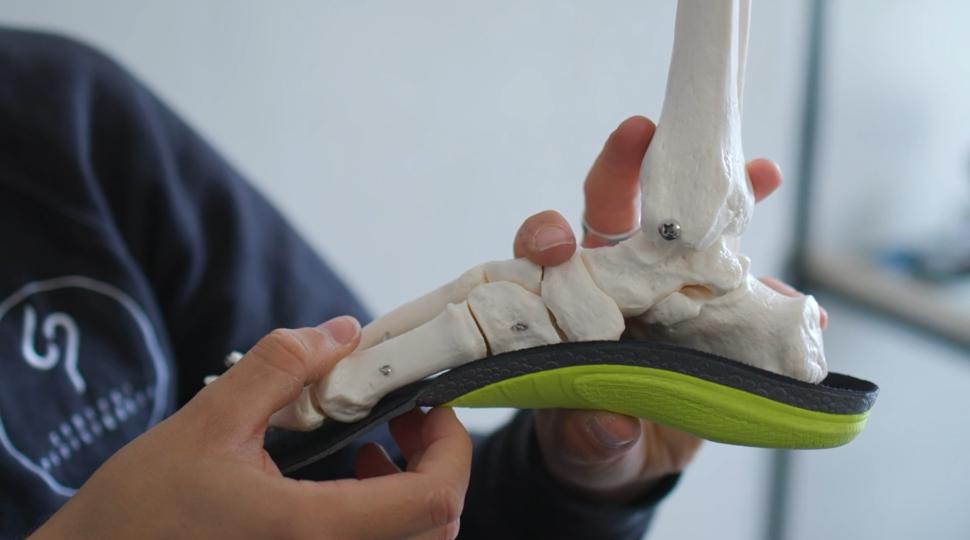
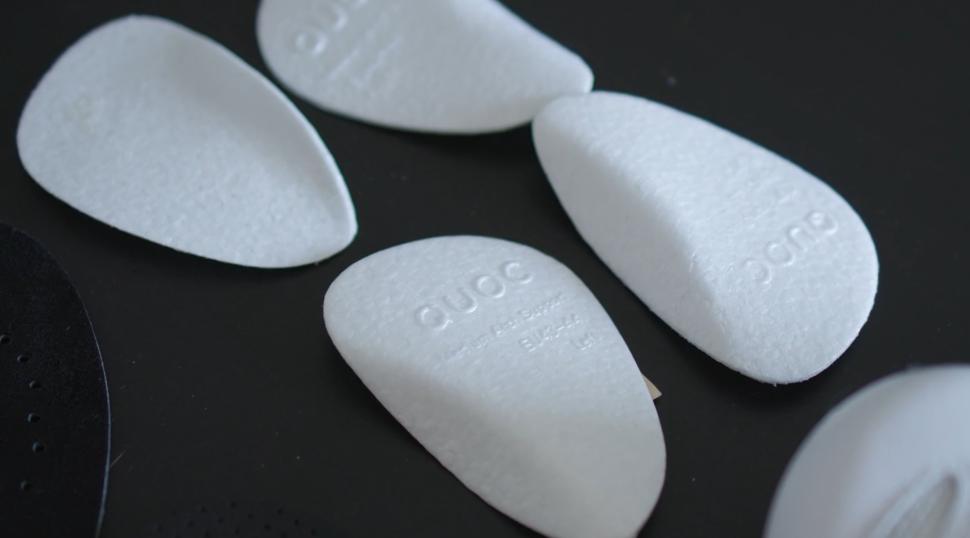
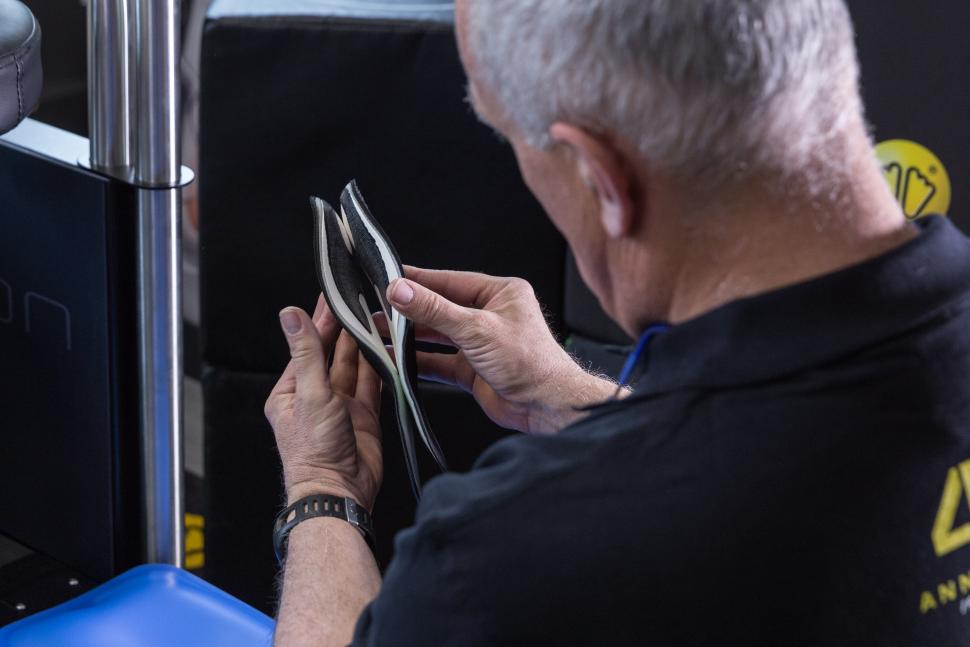
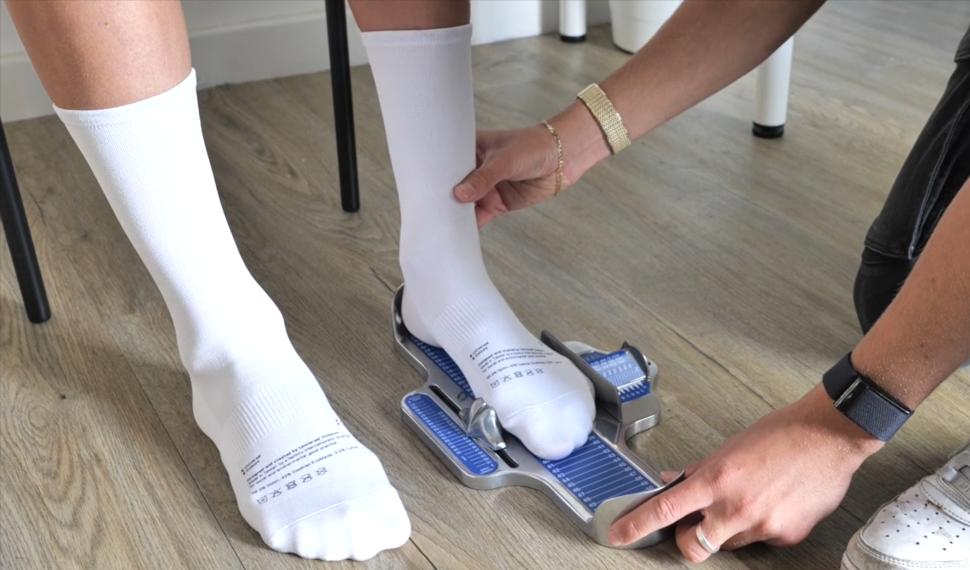
Add new comment
5 comments
I've been using Bont MTB shoes (I run SPD cleats on my road bike) and they've got the advantage of using thermoplastic, so you bake them in the oven for a bit and then put your feet into them (use socks!) whilst the plastic is still warm and pliable and ideally mold them to the shape of your feet. I still found that I needed to go up a couple of sizes to get the right width though.
(A recent gout attack doesn't help with shoe sizing though - must drink more water)
I use these from Specialized, really help alleviate sort feet.
https://www.specialized.com/gb/en/bodygeometry#shoe
Most of us have to up-size shoes to get the width fitting ...
For the last 30ish years I've been buying a size 9 1/2.
Got my feet *professionally* measured and it turns out I'm actually an 8 1/2 G width fitting.
Guess cycling shoes are like cycling clothes... if it fits, you're deformed.
if you can find manufacturers that do a wdie fitting then you don't need to upsize. I think Shimano and lakes do some ranges with a wide version
Specialized do wider fitting shoes